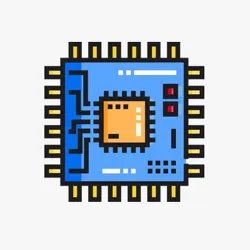- 241 Posts
- 91 Comments
since botting is so easy, probably they used a lot of accounts to access data that, in theory, is somewhat public. I mean, in an ideal world in which engineers have infinite time sure, they would have noticed, but I do investigations on platform apps for work and trust me, they miss a lot of more fundamental stuff.
spotify has a whole economy of bots signing up, uploading fake songs listened by other bots and earning lot of money in the process. I know several people living out of this. A little army of scraper bots is definitely not what they should be the most concerned about.

 1·1 month ago
1·1 month agoPeople don’t use forums anymore. Union organizing requires big numbers and being comfortable with being visible.
The URL shortener for sure could be addressed and I invite you to join and contribute to improve that part of the stack. Nonetheless, TWC is not a hacker space or a space for tech experts. You need to use the tools people already use and meet them where they are at. Using niche tools people are not familiar with introduces friction and barriers, that filter out people without tech skills, or without the attention and time to learn a new tool and incorporate it in their routines. Most tech workers are not programmers, remember that. Also people who are too privacy-focused and tech-focused tend to be bad organizers: union organizing implies risks and exposure, and you have to be comfortable with that, while privacy-focused people want to minimize individual risk by staying hidden. For sure privacy of your communication from the employer or the government plays an important role, because it might give sensitive information to your enemy, but if retaining privacy prevents you from having impact, it’s pointless to even start.

 1·1 month ago
1·1 month agoI’m part of TWC and the organization of this call and I’m Italian. There are different timezones but it’s obviously hard to include all of them. Including UTC wouldn’t help most people.
The very fact that there are two events for two distinct timezones doesn’t suggest there’s an attempt to reach out to a bigger crowd?

 2·1 month ago
2·1 month agoBecause self-hosting adds complexity and friction, something that impact-oriented organizations might not be able to afford. TWC uses self hosting on more sensitive data anyway, just not on these tools.

 3·1 month ago
3·1 month agoThe Global chapter of Tech Workers Coalition

 2·1 month ago
2·1 month agoThe Session A time zone is good for Europeans too. Session B I guess could work for East Asia.
Why do you see this as USA-only?
No union in the world asks rates that high. You’ve been probably have been served some kind of management union busting material if you have ever seen a number that high. 3% is considered very high already.
Anyway AWU is not necessarily trying to bargain for higher wages, but they do work on better job security, better working environments, fairness against abuses, sexual harassment and similar stuff, and obviously they support the political work of anti-genocide groups within Google.
There’s always a reason to join a union if you’re a worker.
I would add exploitation of precarious workers both in the USA, Europe and third-world countries. That said, were you involved in Alphabet Workers Union? If not, why?
He’s a brown guy immigrated to NA and writing on a Marxist magazine. I don’t believe in reducing the personal to the biographical like Americans do, but also I think you can guess the answer to a few of your questions.

 6·1 month ago
6·1 month agowhich expands the group of people that can do this from mobile cybersec people to anybody with some foundations of IT management skills

 4·1 month ago
4·1 month agoCET, it’s in the title

 31·2 months ago
31·2 months agoI guess here the topic is more of insurrections, like what’s happening in Iran right now or how it went on in HK

 13·2 months ago
13·2 months agoI have no clue what you believe this event is actually about and why people go there.

 9·2 months ago
9·2 months agoFreedom of information is freedom for the most powerful to use that information for their profit. The more powerful you are, the more tools you have to harness common goods for profit.

 27·2 months ago
27·2 months agoGod forbid a technical person becomes an adult and starts understanding power, money, and politics. Engineers should be babies playing with their toys and being idealistic and irresponsible about their impact on the world.
I think the point is more general about profiting from “renting” their music rather than from their labor. The fact that Spotify gives them peanuts make their position even more miserable.

 2·2 months ago
2·2 months agoIf you want a sandwich, you have to make it.

 2·2 months ago
2·2 months agoI don’t think AIliens are the same as AGI. I believe in this frame AIliens exist in the mind of people, rather than in the machine. It’s behavior complex enough to be interpreted as such, rather than a sentient being thinking of itself as sentient, as AGI implies. It’s alive in the same way an organization is alive and thinking, or a mycelium network. AGI is human-like intelligence reproduced in silicon. AIliens are… alien.








quitting doesn’t halt the baby-grinding machine. Big tech can only be stopped from the inside. I even know some people getting hired there exclusively to cause trouble. You should respect their commitment rather than anything else.